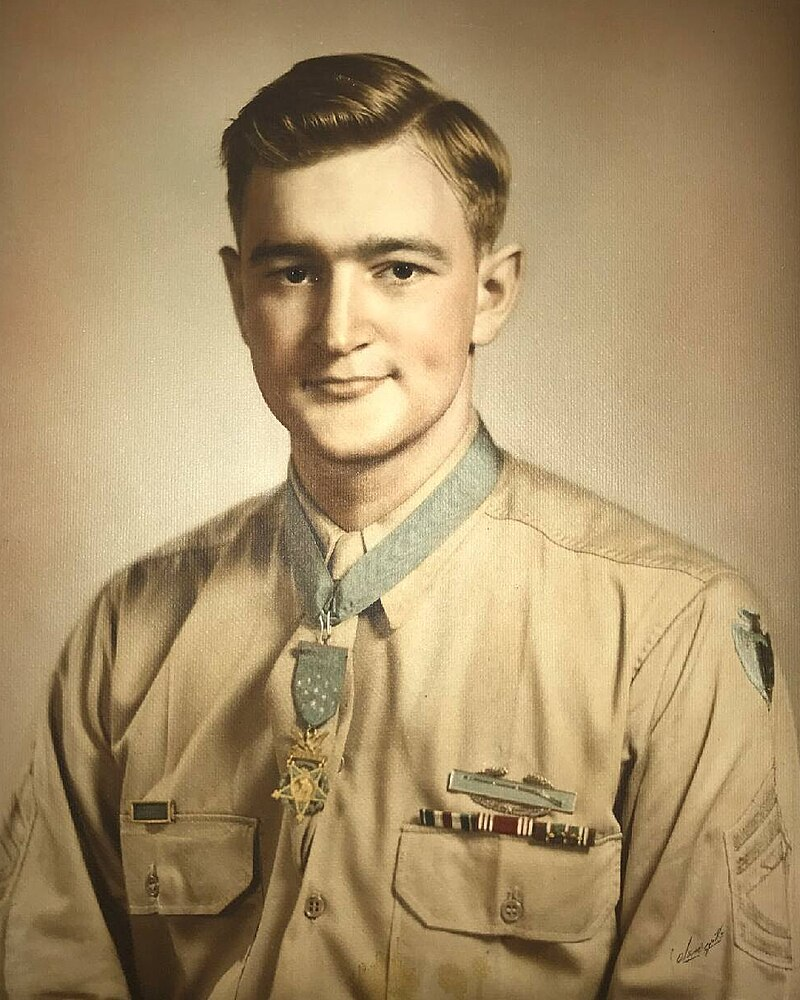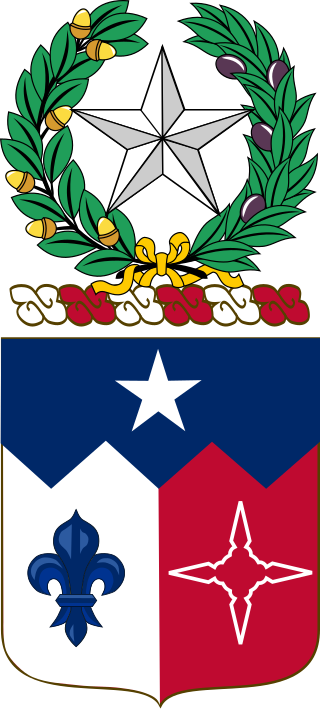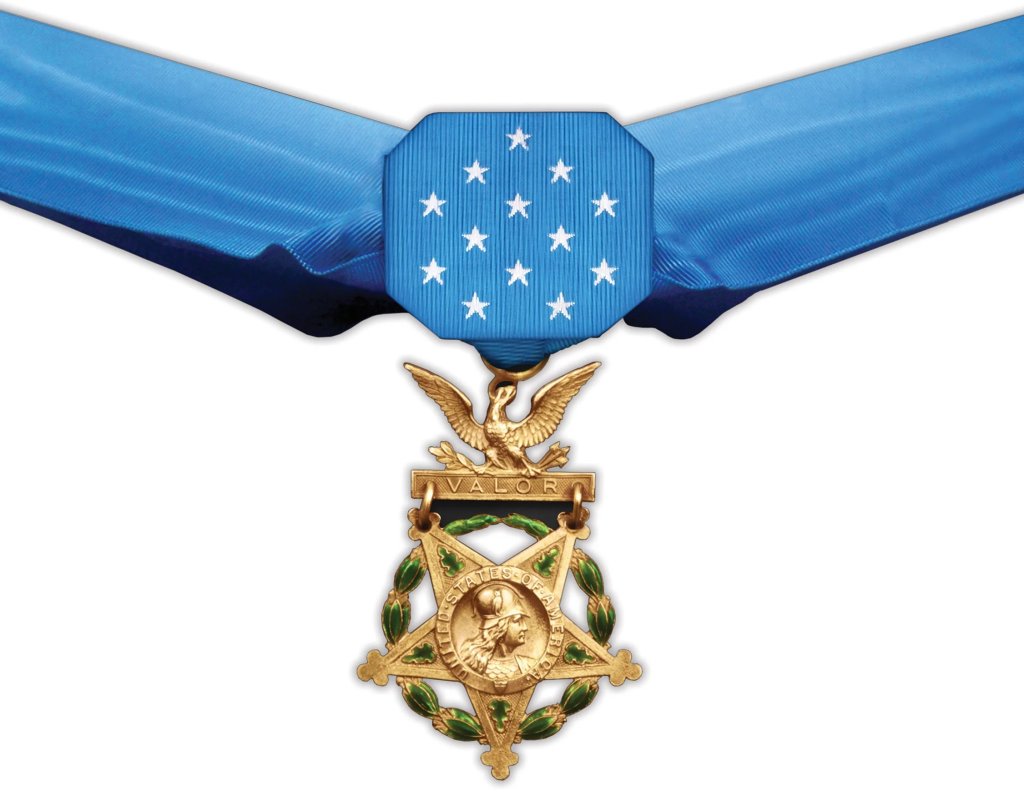 Name: Charles H. Coolidge
Name: Charles H. Coolidge
Rank: Technical Sergeant
War: World War II
Date of Action: October 24–27, 1944
Unit: Company M, 141st Infantry Regiment, 36th Infantry Division
Born: Signal Mountain, Tennessee
Entered Service At: Signal Mountain, Tennessee
Summary of Action
In late October 1944, east of Belmont-sur-Buttant, France, Technical Sergeant Charles Coolidge led a section of heavy machine guns to cover his battalion’s flank along Hill 623. What began as a reconnaissance turned into a fight for survival when he stumbled upon a German company hidden in the forest. Coolidge, standing tall and defiant, ordered the enemy to surrender. They answered with a hail of bullets.
With no officer present and most of his men new to combat, Coolidge immediately took command. For the next four days, under near-constant attack and bitter cold, he calmly walked his line—encouraging his troops, organizing their fire, and repelling wave after wave of German assaults.
On the final day, the enemy brought up two tanks to break the stalemate. Coolidge grabbed a bazooka and advanced alone within 25 yards of the lead tank—but the weapon misfired. Undeterred, he tossed the useless launcher aside, filled his arms with grenades, and crawled forward through withering fire, blasting at the advancing infantry until his position was nearly overrun. Only then did he direct an orderly withdrawal, personally staying behind to cover his men.
Through sheer resolve, Coolidge’s small force held the line against overwhelming odds. His cool leadership under fire saved his men and helped secure the battalion’s flank in one of the most grueling engagements of the Vosges campaign.
Medal of Honor Citation
COOLIDGE, CHARLES H.
Rank and organization: Technical Sergeant, U.S. Army, Company M, 141st Infantry, 36th Infantry Division.
Place and date: East of Belmont-sur-Buttant, France, 24–27 October 1944.
Entered service at: Signal Mountain, Tenn. Birth: Signal Mountain, Tenn. G.O. No.: 53, July 1945.
Citation: Leading a section of heavy machine guns supported by one platoon of Company K, he took a position near Hill 623, east of Belmont-sur-Buttant, France, on 24 October 1944, with the mission of covering the right flank of the 3d Battalion and supporting its action. T/Sgt. Coolidge went forward with a sergeant of Company K to reconnoiter positions for coordinating the fires of the light and heavy machine guns. They ran into an enemy force in the woods estimated to be an infantry company. T/Sgt. Coolidge, attempting to bluff the Germans by a show of assurance and boldness, called upon them to surrender, whereupon the enemy opened fire. With his carbine, T/Sgt. Coolidge wounded two of them. There being no officer present with the force, T/Sgt. Coolidge at once assumed command. Many of the men were replacements recently arrived; this was their first experience under fire. T/Sgt. Coolidge, unmindful of the enemy fire delivered at close range, walked along the position, calming and encouraging his men and directing their fire. The attack was thrown back. Through 25 and 26 October the enemy launched repeated attacks against the position of this combat group but each was repulsed due to T/Sgt. Coolidge’s able leadership. On 27 October, German infantry, supported by two tanks, made a determined attack on the position. The area was swept by enemy small arms, machine gun, and tank fire. T/Sgt. Coolidge armed himself with a bazooka and advanced to within 25 yards of the tanks. His bazooka failed to function and he threw it aside. Securing all the hand grenades he could carry, he crawled forward and inflicted heavy casualties on the advancing enemy. Finally, it became apparent that the enemy, in greatly superior force, supported by tanks, would overrun the position. T/Sgt. Coolidge, displaying great coolness and courage, directed and conducted an orderly withdrawal, being himself the last to leave the position. As a result of T/Sgt. Coolidge’s heroic and superior leadership, the mission of this combat group was accomplished throughout four days of continuous fighting against numerically superior enemy troops in rain and cold and amid dense woods.

